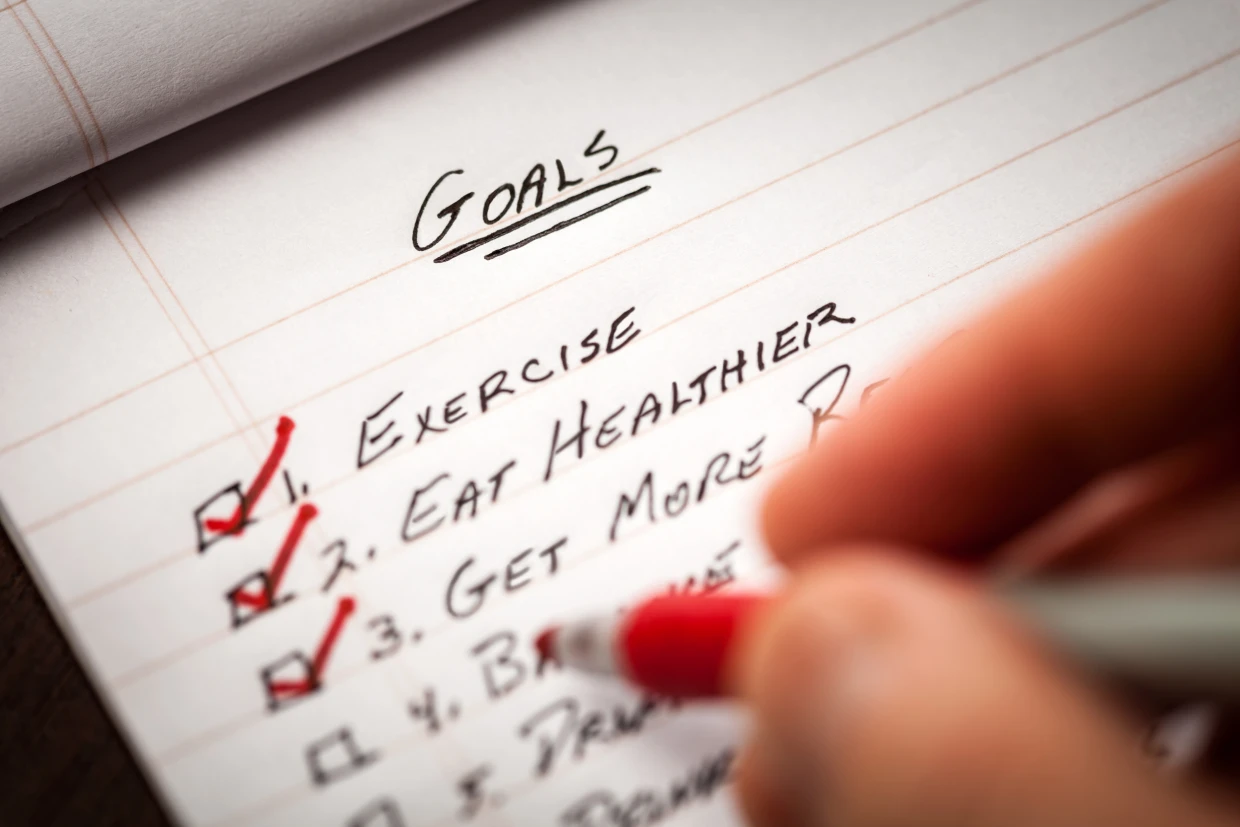6 Habits That Will Make You Happier In Everyday Life: And Ones You Should Avoid
By Saskia Ainsworth
January 10, 2024 • Fact checked by Dumb Little Man

When life gets busy, you can easily feel swamped down with long lists of tasks and work assignments. While it’s normal to be busy from time to time, sometimes working so hard can make you feel exhausted. Building good habits is important and can help you to reach your full potential as an individual. Below, we’ve listed six habits that you can implement in your daily life to help you to feel happier.
6 Habits to Make You Happier
1. Switch ‘Normal’ News for Good News

You may find that you have already slipped into the daily habit of watching the news. While it is useful to keep up to date with current affairs in the world, sometimes it can do more harm than good. More often than not, mainstream news is flooded with negative information. For some, this negativity can leave them feeling worried and pessimistic about the world. If this sounds like you, then there are some useful solutions that you could implement to start feeling more positive.
First, you could start by cutting down on your mainstream news consumption, and instead replace it with some good news. This may help you to feel more uplifted, which you may notice almost instantly.
2. Take Some Time Out of Your Day to Practice Meditation

Always being ‘on-the-go’ can become tiring. Sometimes, it’s a good idea to unwind and let your mind shut off from the outside noise for a little while. Practicing meditation on a regular basis may help you to feel more relaxed. It may also help to alleviate any anxious feelings that have been building up. Practicing regular meditation is a good habit to get into, as it could provide you with benefits such as improved attention and concentration, as well as improved sleep. Start slowly and build your meditation skills up.
3. Disconnect from social media

Disconnecting from social media is a beneficial habit to get into and could potentially help you to be more productive. This could include pursuing a hobby you love or working on a work project. It may also help you to connect more with your family and friends when you spend quality time together. You can begin by slowly cutting down the number of hours that you spend on your phone. However, it is also important to set realistic goals.
4. Go for A Walk

Implementing a form of exercise into your weekly agenda has benefits both physically and mentally. Exercise helps to release ‘feel-good’ chemicals such as serotonin and endorphins, which may help to improve your mental well-being and overall mood. It also helps to keep you fit and healthy and could even help to relieve stress and improve your memory. This is a great habit to get into.
Walking is both simple and easy to implement and can be done at any time of day. For example, you could walk around the block every morning, or even walk to a local shop on a weekend.
5. Carve Out Socialization Time with Your Favorite People

Whether you’re extroverted, introverted, or somewhere in the middle, it is always important to spend time with people you enjoy being around. This could be friends or family, or even work colleagues. Doing fun activities together can help to create enjoyable memories and ultimately help to grow your bond with that group or person. If you’re an introvert, you may find one on one time or small gatherings more suitable and less draining. This way, you can still enjoy socializing.
Such an activity could potentially help to improve your emotional well-being and decrease the risk of loneliness. This is surprisingly more common than people think. Implementing such a habit alongside other positive activities may help you to feel happier overall.
6. Set Goals

Setting goals is an excellent habit to get into and may help you to recognize just how many achievements you can accomplish. You can start by journalling some smaller goals that are easily achievable either on your phone, piece of paper or a small diary. Some examples may include: ‘Go for a walk once a week for the rest of the month’ or ‘Save $200’. Even if you have a bigger goal, you can write it down in small achievable steps. Tick each achievement off as you go along.
Getting into the habit of setting goals may help you to feel more positive, as you realize what you can actually achieve. Some of these achievements may even be things that you may not have even otherwise noticed before.
Habits That You Should Avoid:
1. Checking Your Social Media Constantly
Over the last decade, social media has been documented to have an array of negative impacts on both our emotional and physical well-being. Some of these impacts include delayed sleep and increased risk for mental health disorders like depression and anxiety. Either cutting down on your social media usage or completely removing it from your phone may help to lower these risks. It may even help you to feel more positive in regard to your own self-image and value. This is because you won’t subconsciously be comparing yourself to everything you see online, meaning you can focus on yourself and your own goals.
It is also very easy to forget that much of what we see online is what people want you to see and is often not the reality. In addition, it has also become extremely commonplace for many online users to filter and edit their images. This is something that many of us are exposed to on a regular basis. Seeing such images so often makes it easy for us to forget reality. The answer? Disconnect from social media.
2. Caring Too Much About The Way Others Perceive You
Caring too much about what other people think about you may seem harmless at first. However, you can quickly find yourself sliding down a slippery path to unhappiness and lower self-confidence. For example, you may end up spending too much money on things that you don’t necessarily need just to try and portray a certain ‘statuses or ‘image’ to others. This may include things such as buying the latest designer outfits, or IPhone’s, when you can’t really afford them. Such a habit may eventually lead to financial troubles or stress. To help resolve the problem, you should make sure that you have saved enough to at least buy the item you want twice. In addition, always ask yourself if you really actually need the item, or are you just buying it to impress others? This way you can start to implement some positive financial habits.
Likewise, caring too much of what others think of you may lead to lower self-confidence. While it is important to listen to constructive criticism, there are also people who can just be plain rude and judgmental. These people aren’t the type of people you want to surround yourself with and can tear apart your self-confidence. It is best to distance yourself, as well as telling yourself that their comments are most likely coming from a place of insecurity.
3. Sleeping Too Late
Making a habit of falling asleep late can be detrimental to both your physical and mental health. Not getting enough sleep can negatively affect your productivity, making you feel groggy and lethargic. You may feel as though it is impossible to get tasks done. Sleeping late can also increase the risk of aggravating any mental health conditions you may have.
As an adult, you should aim to get between 7-9 hours of sleep per night. For teens, this number is increased slightly, with a recommendation of between 8-10 hours per night. This should allow you to feel more energized and may help to improve brain performance. Out of all the habits listed, this is probably one of the most important that will impact your well-being.
4. Being Too Hard on Yourself
Being constantly exposed to other people’s accomplishments online can make it challenging not to compare ourselves. Even incredibly successful people can succumb to the pressures of the online world. With this bad habit, you may find yourself feeling deflated and unhappy, or even unworthy as an individual. However, you can combat this by cutting down on your social media usage and remembering to take a realistic view on life. Remind yourself that what you see online is not reality, and that most people are most likely living a life very similar to yours. Take note and jot down your achievements. You can also note things that you are good at, such as having an eye for art or being a good runner. This may help to make you feel more uplifted and happier within yourself.
Saskia Ainsworth
Saskia is a freelance writer for TheThings and Utopia. She also owns her own news website, Happy Headlines.


